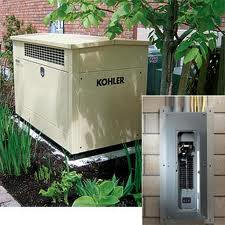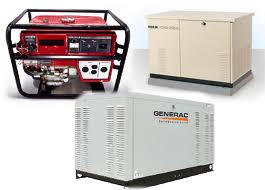This article is both interesting and informative. It is written by an independent author and hits
the nail right on the head. Call Sylvia Electrical Contracting today for a free estimate and home
inspection. Toll free 877-535-6661
Is Your Electrical Wiring the Fuse for a Bomb in Your Home? According to the U.S. Fire Administration, "During a typical year, home electrical problems account for 67,800 fires, 485 deaths, and $868 million in property losses. Home electrical wiring causes twice as many fires as electrical appliances." One of the most misunderstood areas of the home and home safety, almost every homeowner has some misconceptions about how their electrical system works. Getting a better understanding of the possible dangers lingering behind your walls and around your electrical sockets may just save your home and your household.
Electrical Fires: Invisible, Odorless, and Deadly
What to know how dangerous an electrical fire can be? "An electrical fire rarely gives off a smell," says Clarence Williams, licensed electrician and founder of W M Electrical Services in the greater Washington D.C. area. "It doesn't smoke so the smoke detectors don't go off right away." Faulty electrical wiring heats up and will begin to smolder, often taking a year or more to finally ignite. There are no warnings that an electrical fire is about to start. Worse yet, they can be some of the trickiest fires to extinguish once they get going. For one home Williams had serviced, the homeowner had hooked up the electrical wiring for two wall sconces backwards. The wall spontaneously burst into flame, nearly taking the house with it.
Myths about Electrical Wiring and Safety
1. Fuses and Circuit Breakers: Fuses and circuit breakers protect the wiring and electrical circuit, not the circuit itself or the appliances and loads they're connected to. This one is huge. Williams says he's even talked to some electricians who were mistaken about the role of fuses and breakers. This means that if a current is high enough to damage the wiring, the fuse or breaker will detect this and open the circuit. However, unacceptably high currents can cause insulation damage and overheating that threaten to either damage electrical appliances connected to the circuit or cause combustible materials near the wiring to ignite. Rather than simply relying on fuses and circuit breakers, you need to ensure that wiring is properly sized and appropriate appliances are put on separate circuits.
2. Old Homes Need Electrical Upgrades: When homes are built, strict building codes and a professional, licensed electrician all but guarantee a safe electrical system in the home. "Even a home built in 1900," Williams says, "should be perfectly safe today, if nobody has tampered with the wiring." Of course, since most people can't live without a microwave and other modern appliances, almost no home goes too long with its original wiring. Most problems with electrical wiring occur when these upgrades aren't done right. Microwaves, computers, space heaters, and air conditioners are the biggest culprits, but any appliance, even toasters, may require alterations to your electrical wiring.
One common problem was the unfortunate habit—somewhat common during the 70s—of using aluminum wiring. Aluminum wiring will expand and contract when heated and cooled, causing loose connections that are extremely dangerous. To maintain the safety of your home, aluminum wiring must be retrofitted with copper "pigtails" that prevent these loose connections.
3. Extension Cords are Safe: Many homeowners know that different extension cords have different electrical ratings and capacities. Few actually heed the requirement that their extension cord be rated to match the appliance it's plugged into. Extension cords running to computers, air conditioning units, and space heaters, and any major appliances must be able to handle the load. Otherwise the extension cord will heat up, causing the entire circuit to become unsafe and potentially able to create an electrical fire. Particularly, dangerous is the habit of running an extension cord under rugs, furniture, or anything else that will capture this heat, instead of allowing it to dissipate.
The Golden Rule
These myths are important to debunk for homeowners, but they don't compare to this single piece of advice: Don't, don't, don't do it yourself. Asked what the most common cause of faulty electrical wiring, Williams says without hesitation, "People trying to do it themselves, and people passing themselves off as licensed electricians." Plumbers and handymen are the most common posers, but as a homeowner, you absolutely must check to make sure the person you hire has the necessary licensing.
The DIY culture is a natural extension of American know-how, pluck, and the shortage of qualified contractors in the home improvement industry. Many homeowners turn to the Internet for information about their projects. This won't cut it for electrical work. In fact, many electricians refuse to dole out advice about projects online not to protect their profit margins, but to avoid getting sued by a homeowner who misinterpreted the information. When it comes to electrical work in your home, perhaps the best wisdom comes from Socrates. If you know nothing else for sure about your electrical wiring, know the fact of your own ignorance and hire a licensed electrician.
Marcus Pickett is a professional freelance writer for the home remodeling industry. He has published more than 600 articles on both regional and national topics within the home improvement industry.
Contact a Boston Electrician or choose a local electrician in by calling 877-535-6661:
Peabody or Fitchburg
Greater Boston: Burlington MA, Melrose MA, Wellesley MA, Arlington MA, Belmont MA, Boston MA, Brookline MA, Cambridge MA, Charlestown MA, Malden MA, Medford MA, Newton MA, Everett MA, Chelsea MA, Revere MA, Lexington MA, Somerville MA, Waltham MA, Watertown MA, Winthrop MA, Boston MA Boston Electrician, electrician Boston, Electricians Boston, Boston electricians
North Shore MA: Middleton MA, North Andover MA, Wenham MA, Rockport MA, Rowley MA, Salisbury MA, Topsfield MA, W. Newbury MA, Boxford MA, Newburyport MA, Haverhill MA, Lawrence MA, Lowell MA, Lynn MA, Beverly MA, Danvers MA, Peabody MA, Salem MA, Marblehead MA, Nahant MA, Saugus MA, Lynnfield MA, Wakefield MA, Melrose MA, Stoneham MA, Woburn MA, Billerica MA, Wilmington MA, Hamilton MA, Andover MA, Amesbury MA, Bradford MA, Essex MA, Georgetown MA, Gloucester MA, Groveland MA, Ipswich MA, Merrimac MA, Methuen MA, Newbury MA
Boston Electrician, electricians, Electricians Boston, Boston Electricians
South Shore MA: Braintree MA, Brockton MA, Canton MA, Cohasset MA, Duxbury MA, Hanover MA, Hingham MA, Hull MA, Boston MA, Tewksbury MA, Milton MA, Norwell MA, Pembroke MA, Plymouth MA, Randolph MA, Quincy MA, Rockland MA, Scituate MA, Weymouth MA
Boston Electrician, electricians, Electricians Boston, Boston Electricians
Metro West MA: Acton MA, Hudson MA, Marlborough MA, Boston MA, Maynard MA, Shrewsbury MA, Stow MA, Concord MA, Littleton MA, Carlisle MA, Dover MA, Natick MA, Boston MA, Framingham MA, Dedham MA, Weston MA, Lincoln MA, Winchester MA, Wellesley MA, Sudbury MA, Fitchburg MA, Leominster MA, Needham MA, Southborough MA, Westborough MA


